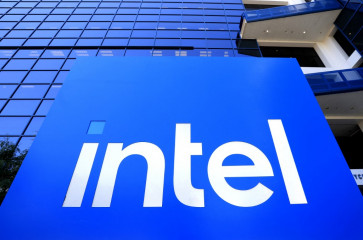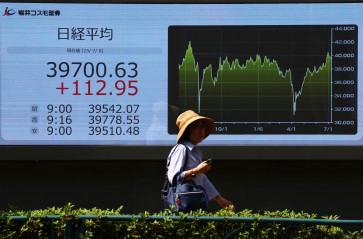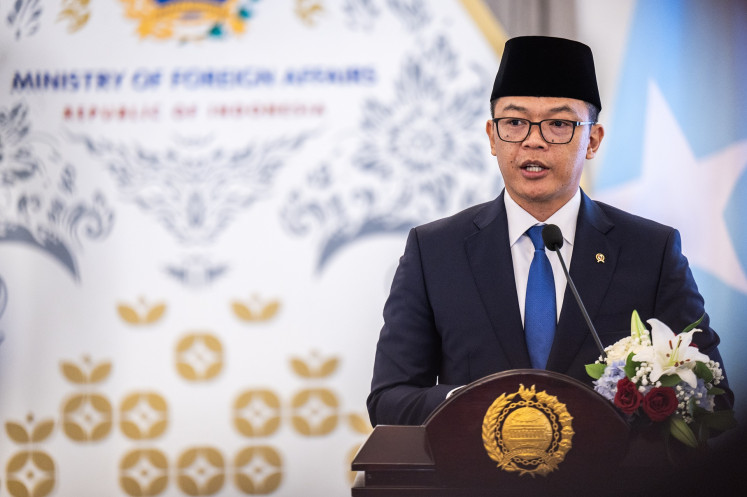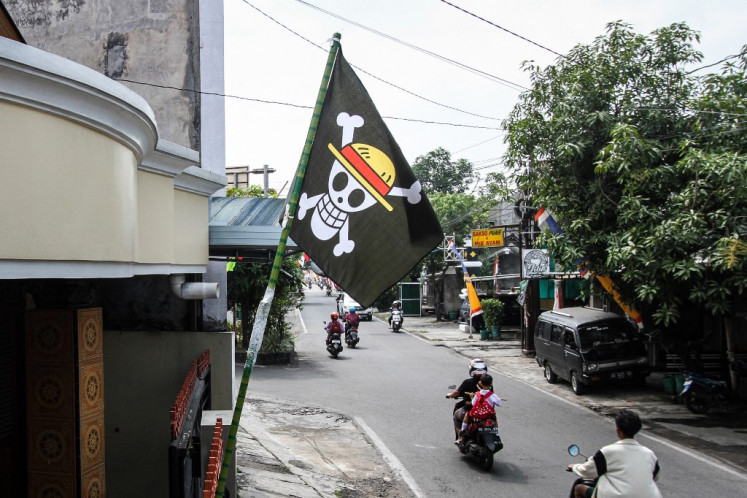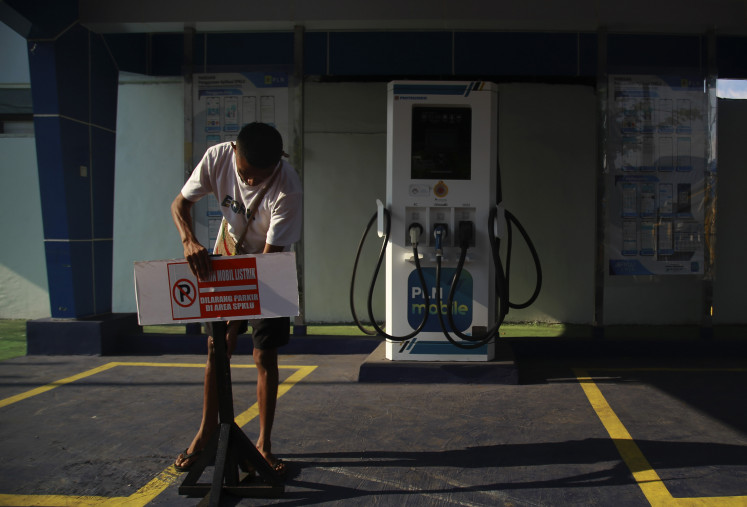Popular Reads
Top Results
Can't find what you're looking for?
View all search resultsPopular Reads
Top Results
Can't find what you're looking for?
View all search resultsBlackmailing Jakarta
The late president Soeharto, who led Indonesia under authoritarian rule for more than three decades until May 1998, would cringe to see how the provincial governments in Kalimantan have provoked local people to block coal shipments to Java to force the central government to meet their demand for larger allocations of subsidized fuel
Change text size
Gift Premium Articles
to Anyone
T
he late president Soeharto, who led Indonesia under authoritarian rule for more than three decades until May 1998, would cringe to see how the provincial governments in Kalimantan have provoked local people to block coal shipments to Java to force the central government to meet their demand for larger allocations of subsidized fuel.
Regional administrations never dared to show such renegade attitudes under Soeharto’s authoritarian regime with its centralized administration.
But an acute lack of leadership on the part of President Susilo Bambang Yudhoyono and regional autonomy, which was launched in 2001, have encouraged an increasing number of regional leaders to resort to such rebellious actions in forcing their demands upon the central government.
In May last year, East Java Deputy Governor Saifullah Yusuf threatened to close access to the West Madura offshore oil and natural gas block in a protest against the central government, which had rejected the provincial administration’s demand for 40 percent of the shares of the oil and gas revenue.
Saifullah, a Cabinet minister in Yudhoyono’s first administration, even warned the central government that the provincial and regency administrations would agitate to turn the local people against oil and gas development.
Earlier in April of last year, the West Sumbawa regency administration sponsored and provoked massive demonstrations against the US$3.8 billion copper and gold mine belonging to PT Newmont Nusa Tenggara (NNT) because it was not allowed to acquire an additional 7 percent stake in the mine.
In March, the Bali governor and a number of regents and deputy regents across the country stood against the government’s plan to raise fuel prices. Some of them even joined mass rallies to resist the national policy.
And then last Saturday, groups of local people started blocking coal shipments from Kalimantan to Java. If the blockade continues for weeks and expands to all major rivers, via which coal is shipped from coal mines to seaports, Java could suffer an extensive power blackout because Kalimantan accounts for more than 80 percent of the country’s thermal coal production, which last year totaled 371 million tons.
The leaders of the four provincial governments pledged on Wednesday to stop the blockade only after Energy and Mineral Resources Minister Jero Wacik agreed to increase both their quotas of subsidized fuel and supplies of fuel that have to be bought at market prices.
But that is really quite a dangerous precedent. Like a tiger that has just tasted blood, other regional administrations may in the future be encouraged to resort to such blackmailing tactics, using their natural resources as leverage to forward their demands.
The demand by the regional administrations in Kalimantan for an almost 30 percent increase in their subsidized-fuel allocation seems unreasonable because their consumption of subsidized fuel will not increase so sharply even if their economy grows by 7 percent this year, because industrial users have to procure fuel at market prices.
But the problem should also be blamed partly on the central government, which has failed to take a firm decision to cut down on subsidized fuel by raising fuel prices, a strategy it had planned since late last year.
We fully share the view of some lawmakers who have said that the sudden shortage of subsidized fuel in Kalimantan, which caused long lines of motorists at gas stations, had been caused by the misuse of subsidized fuel by industrial users and export smuggling as the subsidized-fuel price is now more than 50 percent lower than the market price.
It is high time for the central government to act firmly and quickly to rein in renegade regional administrations that resort to use their natural resources as a bargaining chip to blackmail the central government into fulfilling their demands, whatever they may be.
Allowing such hostile attitudes will only heighten the legal uncertainty about investment in the development of natural resources, validating the fear that an imbroglio could trap businesses in the regions.



